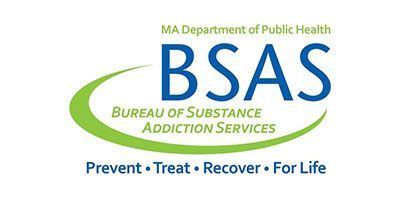General
Frequently Asked Questions
(F.A.Q.)
-
What insurance do you accept?
All Mass Health plans (Tufts not included)
-
What services does Ignite Recovery currently offer?
Ignite offers - Recovery Coaching, Recovery Support Navigator, Outpatient Substance Abuse Counseling, CSP-JI Services, IOP/SOAP Group Sessions.
-
What areas in Massachusetts does your organization serve?
Ignite Recovery has offices in Fall River and Attleboro, and although we focus mostly on serving the Southeastern MA and Bristol County areas, we can work with anyone in the state of Massachusetts.
-
What is substance use counseling?
Substance Use Counseling begins with a biopsychosocial assessment of the client, and the development of a treatment plan. Substance Use Counseling often identifies and addresses the underlying causes of different behaviors and traits displayed by the client.
Substance use counseling should help clients to identify high-risk situations and triggers, and how to develop the proper skills to prevent relapse. The overall goal of treatment is to help each client achieve lasting recovery. All of Ignite’s substance use counselors are licensed providers who have lived experience with addiction.
-
How do I enroll in substance use counseling services?
If you are a new person enrolling in services at Ignite, please call our main line at 508-296-0523 and our office manager will complete an intake with you, evaluate your current needs, and explain the different services that we offer. If it is determined that substance use counseling is the appropriate level of care that you need, you will then complete a clinical intake which consists of a few additional forms. Then, we will assign you to a counselor and your first appointment will be scheduled.
If you are an existing client at Ignite that is receiving our other services and you would like to enroll in clinical outpatient counseling, you may either notify your recovery coach or recovery support navigator and they will complete the referral for you, or you may also call our main line at 508-296-0523 and let the office manager know that you are looking to enroll in additional services. Once the clinical intake is completed, we will assign you to a counselor and your first appointment will be scheduled.
Recovery Coach

-
What is a recovery coach?
Recovery Coaches (RC) are individuals currently in recovery who have lived experience with addiction.
-
Who is Eligible for this service?
Members must have substance use disorder and must be “attempting to achieve and/or maintain recovery”.
-
Components of Service
Act as a mentor, assisting the Member’s recovery process and supporting the Member’s goals and decisions; support the Member in creating and enacting a Wellness Plan
-
Recovery Coach Roles and Responsibilities
- emotional/social support
- identify clients recovery capital
- Assist in motivating/facilitating connections to primary and specialty medical, dental and mental health services as well as social services, including applying for benefits and navigating other relevant systems, including criminal justice and child protection/child welfare.
- Assist Members in creating personally meaningful links to treatment, peer recovery support services, and mutual aid, and support them in their efforts to build their capacity to move between and among these services and supports as needed.
- Role model and living example of a person in recovery.
- Act as a recovery liaison and support the Member in preparing for or accompanying Member to meetings with, for example, probation officers, social workers, and child protection/child welfare workers.
- Provide linguistically appropriate and culturally sensitive peer recovery supports that embrace the diversity of members’ identities that include racial, ethnic, gender/gender identity, sex, sexual orientation, physical and intellectual challenges and their chosen pathway to recovery.
- Serve as an advocate for Members and assisting Members in learning self-advocacy skills
- Provide Recovery Coaching services in a person-centered and strength-based manner.
- Provide temporary assistance with transportation to essential self-help, peer support and medical and behavioral health appointments while transitioning to community-based transportation resources. The Recovery Coach uses transportation as an opportunity to advance the peer relationship, provide support and mentorship, and/or support the member’s independence in obtaining transportation resources
- Obtaining releases of information for coordination of care with other providers/agencies, and also for emergency contacts or family members
Recovery Support Navigator

-
What is a Recovery Support Navigator?
Paraprofessionals who provide care management and system navigation support to engage Members as they present in the treatment system and support them in accessing treatment services and community resources.
-
Who is Eligible for this service?
Eligible Members must have a diagnosis of substance use disorder:
• are in need of additional support in remaining engaged in treatment
• identifying and accessing treatment and recovery resources in the community including prescribers for addiction and psychiatric medications
• and/or developing and implementing personal goals and objectives around treatment and recovery from addiction and/or co-occurring disorders.
-
Components of Service
Develop a set of goals and objectives that guide the activities of the RSN services. If a Member has a care plan, such goals and objectives must be consistent and supportive of the overall care plan.
-
Recovery Support Navigator Roles and Responsibilities
- unfamiliarity of resources available (new to area, new to recovery)
- the need for a prescriber (MAT or psych)
- Need for provider (PCP and/or Dentist)
- transportation needs
- need for outpatient services not available or provided for by Ignite
- need for higher level of care or residential treatment
- support for high risk, homeless, actively using, DV
- Open case with criminal, civil or DCF involvement
- On Probation or parole
- Specific need for linguistically appropriate and culturally sensitive recovery support navigation that embraces the diversity of people's identities that include racial, ethnic, gender/gender identity, sex, sexual orientation, physical and intellectual challenges and their chosen pathway to recovery.
- Perinatal/Parenting supports
- In need of support with SSI, SSDI, cash assistance, food stamps, etc
- In need of support with basic/essential needs such as food, shelter, clothing, fuel assistance, toiletries, etc
- Educational/Vocational/Employment/Unemployment/FMLA/short term/long term Disability assistance
- Support with long term housing; RAFT, Section 8, Catholic Social Services
- Support with obtaining identification documents, social security card, birth certificate, license/ID, etc.
- DMH/DDS application assistance
- Assistance with getting PT-1 transportation set up


